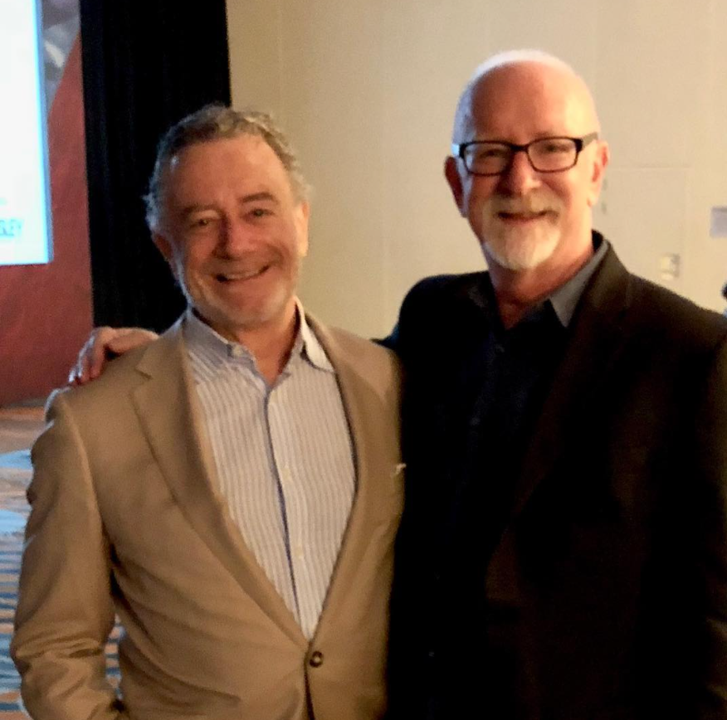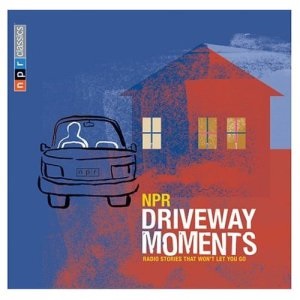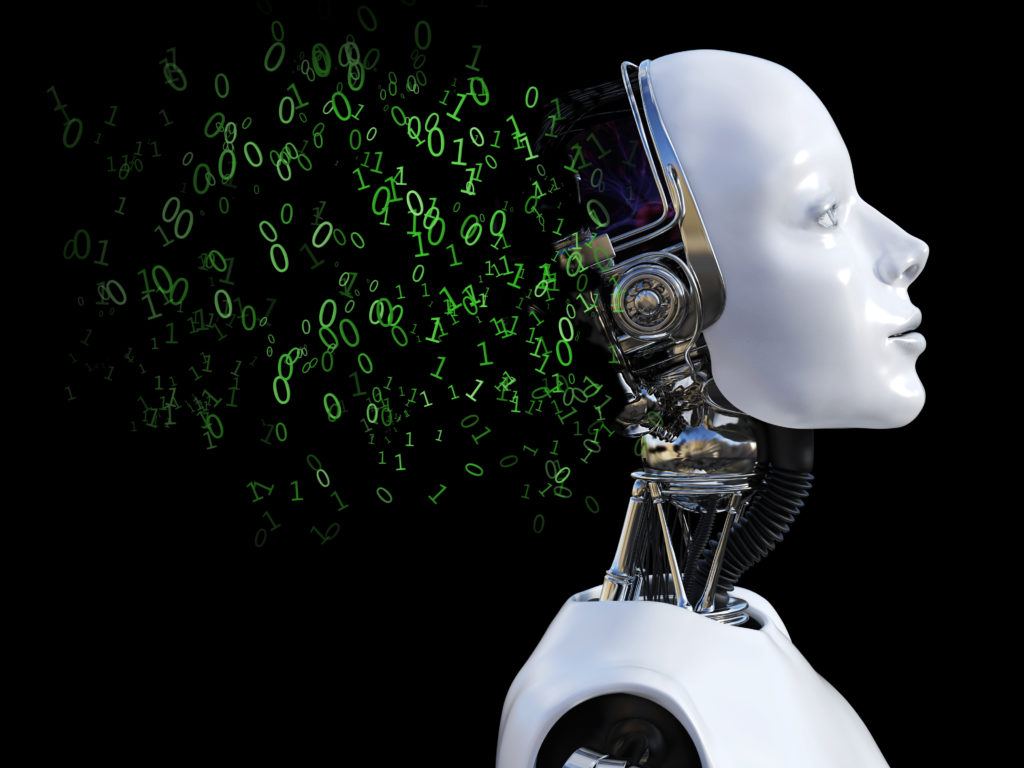
I bet you saw the headline of today’s post and figured I wrote it yesterday (or more likely, earlier this morning). But the fact is, it was written exactly five years ago in April of 2019. And AI was being talked about THEN.
Despite it being #Throwback Thursday, I think you’ll find it useful, relevant, and hopefully thought-provoking. Five years ago, we were speculating about the potential impact of Artificial Intelligence on media, specifically radio. Today, we’re living it…the dream, the nightmare – or a little of both.
This post also recounted a live interview I conducted with then-CEO of NPR, the great Jarl Mohn. Back then, NPR – and most of public radio – was on a serious roll. The ratings were strong, public radio was leading the league in podcasting, the news programming was the envy of the world, and its storytelling was the best in business. Recently, NPR welcomed its new CEO, Katherine Maher, and I hope she is as effective and visionary in her own way as Jarl was when he took the job.
I hope you appreciate the perspective in what has become the biggest story in media so far this century, and maybe our lives. What a story! – FJ
April 2019
Last summer at Podcast Movement, I had the pleasure of hosting a fireside chat with Jarl Mohn, CEO of NPR. As everyone knows, public radio has been especially successful in the on-demand audio space. And our goal of putting Jarl on stage in the main ballroom was to give attendees an inside look into the strategic architecture of NPR’s master podcasting schematic.
So, my first question to Jarl, once we got past the pleasantries, was to the point: explain why public radio has enjoyed a decided edge in podcasting among the three most important constituencies – listeners, advertisers, and critics.
And without pausing a moment, he told me this:
“Simple – it’s about storytelling.”

We took a few moments to flesh out that response, holding it up against success after success in podcasting – not just today in public radio, but for the past many years. But it came down to that single quality that frequently sets public media apart from its commercial broadcasting counterparts.
It was a moment reminiscent of that scene in The Graduate where the businessman pulls a young Benjamin Braddock (played brilliantly by Dustin Hoffman) aside at a party to impart that one-word key that would unlock the future:
“Plastics.”
Actually, my money’s on storytelling. Not just because of its importance to podcasting, but because it is also the key to creating great radio in an increasingly crowded field of media choices. When you think back to many of the greats of the airwaves – then and now – they all had that uncanny ability to tell a great story:
Paul Harvey, Larry Lujack (remember “Animal Stories?”), Rush Limbaugh, Howard Stern, Dr. Ruth, Nick Michaels, Alison Steele, Jim Ladd, Casey Kasem, J.P. McCarthy, Delilah, Steve Dahl – the list goes on and on. And while they all reside in different wings of the radio building, their ability to enthrall you with a story is at the foundation of their great talent.
And part of that skill set is their ability to surprise you – telling you something you didn’t know or didn’t expect. And delivering it in a way that made you hang on their every word.
In public radio, these aren’t exceptional moments – they are everyday occurrences. Whether you’re listening to a revealing interview on Fresh Air, enjoying the insights on the TED Radio Hour, or captivated by amazing stories on The Moth, you’re on the receiving end of great storytelling. Let’s also not forget, the NPR feature aptly called “StoryCorps” – sharing amazing tales, remembrances, and life lessons from Americans from all walks of life – got its start back in 2003 thanks to David Issay.
 These “must-listen-to-occasions” are what NPR calls “Driveway Moments” – in fact, they have created a whole line of products around those times when you remain in your car because you absolutely must hear the end of the story, a news feature, or something else. In public radio circles, the term is well-known, among talent, producers, and listeners.
These “must-listen-to-occasions” are what NPR calls “Driveway Moments” – in fact, they have created a whole line of products around those times when you remain in your car because you absolutely must hear the end of the story, a news feature, or something else. In public radio circles, the term is well-known, among talent, producers, and listeners.
Part of the charm of radio and its storytelling content is that audiences don’t always realize what they’re getting into. In public radio focus groups, you regularly hear people explain that a news feature on Morning Edition or All Things Considered didn’t initially sound very appealing. But once a listener got a minute or so in, they discovered just how fascinating the topic, the treatment, or both actually are.
Of course, in the age of algorithms, these serendipitous moments when you stumble across content that surprises you may become fewer and farther between. That’s because the science of predicting what we like, and determining how to customize it for individual consumers is getting better and better.
A couple of weeks ago, Harvey Kojan shared an article from TechCrunch, “Get Ready for a New Era of Personalized Entertainment.” But it was the story’s subtitle that caught my attention:
“The Ghost in the Machine Will Now Tell Stories.”
Penned by Jarno Koponen, an AI scientist, it’s a challenging but important read about the coming wave of “smart content.” We have become used to algorithms suggesting movies, books, or restaurants we might like, based on past usage and preferences. But now, that same data is being “used to match people and content.”
Koponen explains here’s where the data science is headed:
“Smart content means that content experience itself is affected by who is seeing, watching, reading or listening to content. The content itself changes based on who you are.”
Koponen goes on to tell us “smart content” is coming to news – and by extension, that means podcasting. The AI will determine how the same story or podcast will sound different depends on who accesses it. Those who are familiar with a concept or a newsmaker gets a more informed version, while those who may not be as aware receives “beginner’s” content.
An end result of this selected information – or entertainment – being algorithmically delivered to an individual is the increasing amount of content  that confines us to our bubbles.
that confines us to our bubbles.
We know that’s the case on social media, where we continue to encounter stories, features, and other content selected to match our political, social, or economic views. The net effect is to limit our exposure to material that falls outside the digital lines drawn up by the algorithms.
Koponen is optimistic about how smart content could become nirvana for media fans, combining AI with storytelling. It will serve up stories pretty much guaranteed to be interesting and compelling to each of us.
Yet, radio when it’s on its game can stimulate consumers to seek out new and different experiences, driven by great storytelling. We think we know what we like, but it’s that ability to go beyond the prediction software that provides an interesting, even buzzworthy experience.
NPR, PRX/PRI, APM, and other public radio networks understand the value of these “driveway moments” – when we are so riveted by what we’re hearing we can’t get out of the car. Increasingly, so do local public radio stations, as they craft their own podcasts that tell stories of relevance to hometown residents. Earlier this week, Michigan Radio and NPR were honored with a Peabody Award for their acclaimed Believed podcast, the powerful and tragic story of Olympics gymnastics doctor Larry Nassar. There will be more of these, as local news media organizations and hometown radio stations discover the power of their own in-house storytellers.
At least, that’s the goal. Because the way you beat that “ghost in the machine” is to provide a more genuine, human experience that resonates with your audience, whether they’re into politics, Classic Rock, football, or quilting.
When radio DJs, hosts, shows, and producers weave those magical tales that capture our interest, our imaginations, and our attention, the medium lives up to its history and its potential in a world where the content we experience will be increasingly decided by the H.A.L.s we allow into our lives.
The way out of the bubbles and the echo chambers is simple.
It’s about storytelling.
How do fans of your format feel about AI and how its used on the air? Get those answers in our free all-industry webinar presenting the top-line findings from Techsurvey 2024 on Thursday, April 25 at 2pm ET. Register here.
- The New Pope Was Selected Faster Than Most Radio Organizations Hire New CEOs - May 12, 2025
- What If Radio Tried Something Right Out Of Left Field? - May 9, 2025
- Why Radio PDs Are A Lot Like NBA Coaches - May 8, 2025





Story telling lasts through the ages. The delivery changes with the times. Best presentation always wins.
A machine is a machine. AI is a data collector. A human is a collection of experiences. One’s own as well as those we can relate to. Gratitude that growing up in NYC, with Top 40 WABC carrying Paul Harvey, the art of story telling on the radio was ingrained in my future everyday. He broadcast till in his 90s. Pray that radio remembers one of its primary advantages. As far as AI goes, we are definitely on “Page 2.”
Great comment on radio at its best. And any day Paul Harvey was on the air it was a “good day.”
Well-said, Paul. d